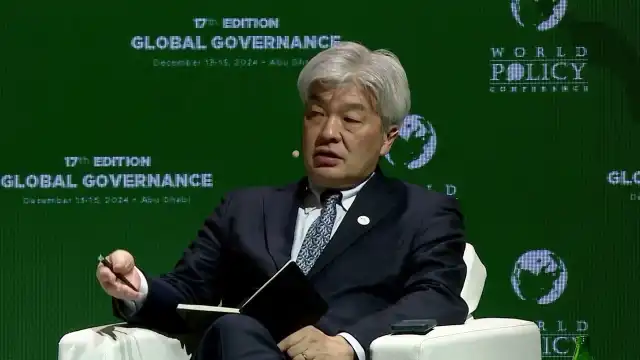India is poised to become one of the world’s largest markets, but realizing this potential requires inviting more foreign companies to establish production and integrating into global supply chains. Kazuto Suzuki, Director of the Institute of Geoeconomics, Tokyo, emphasized that India needs a unified regulatory and governance framework to sustain higher growth.

“There are differences between states—taxation, rules, and standards—which make India a less homogeneous market and create barriers for investment,” Suzuki said. “One nation, one set of rules, and one governance model could make resource use more efficient, similar to Japan’s post-war growth.”
Government Guidance Remains Crucial
Drawing on Japan’s experience, Suzuki noted that industrial policy and state guidance remain essential. “Market mechanisms alone can sometimes fail. Proper government guidance ensures resources are used efficiently,” he said.
Time for Mega Trade Deals
On India’s potential accession to the Comprehensive and Progressive Agreement for Trans-Pacific Partnership (CPTPP), Suzuki suggested the decision depends on India embracing deeper multilateralism.
“Most of India’s FTAs are bilateral because they are easier to negotiate, but a collection of bilateral agreements does not equate to a mega FTA,” he explained. Joining such blocs could help India integrate into global supply chains and attract investment.
Trade Utilization Challenges
Despite a bilateral FTA signed in 2011, India-Japan trade has remained modest. Suzuki attributes this to red tape, structural mismatches, and logistics bottlenecks.
“Import licenses, internal tariffs, non-tariff barriers, and administrative hurdles limit trade. Indian industry is not yet focused on integrating into supply-chain networks,” he said. Small and medium enterprises producing high-quality goods are scarce, and transport costs remain high due to weak infrastructure.
Beyond Oil and Geopolitics
Suzuki commented on US-India tensions over Russian oil imports, calling them more geopolitical than energy-related. “If the US were serious about stopping Russian oil trade, pressure would also target China and other major buyers. India is significant, but not the only importer,” he noted.
Expanding Strategic Cooperation
Looking ahead, Suzuki highlighted defence and space as emerging areas of India-Japan collaboration.“We already cooperate in maritime and space domains. Earlier, India’s space programmes focused on social development; now, they are shifting towards exploration and security applications,” he said, crediting Prime Minister Narendra Modi for advancing India’s space transition.
